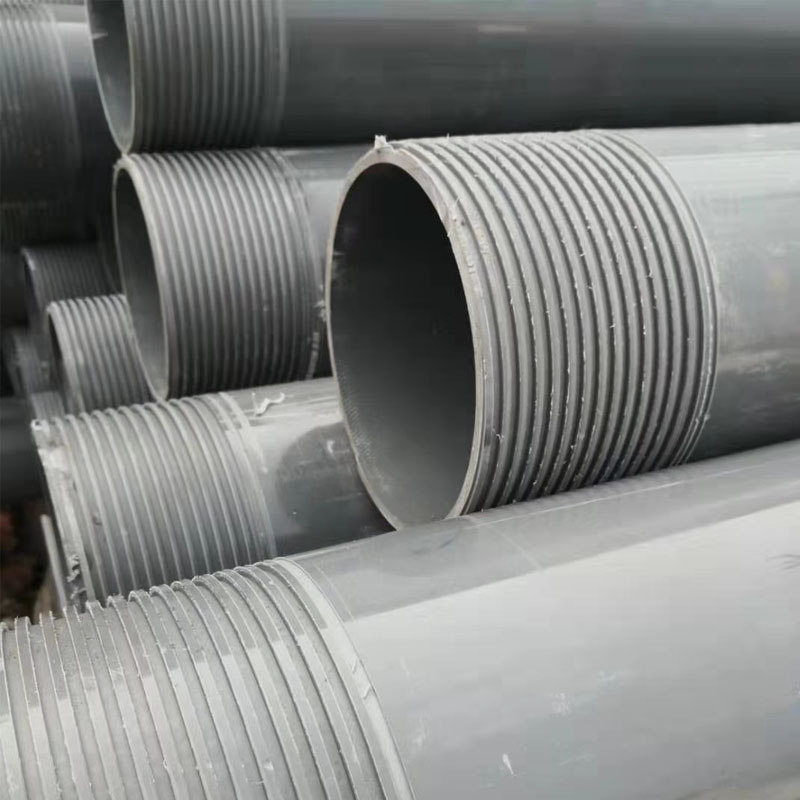Aug . 30, 2024 20:52 Back to list
use of pvc pipe manufacturer
The Use of PVC Pipes and Their Manufacturing Process
Polyvinyl chloride, commonly known as PVC, is one of the most widely used materials in the construction industry today. The versatility, durability, and cost-effectiveness of PVC pipes make them a popular choice for various applications, ranging from plumbing and drainage systems to electrical conduits and irrigation. Understanding the use of PVC pipes is essential for both manufacturers and consumers to make informed decisions regarding their applications and benefits.
Applications of PVC Pipes
PVC pipes are primarily known for their use in plumbing systems. They are lightweight, easy to install, and resistant to corrosion, making them ideal for transporting water and sewage in residential and commercial buildings. The smooth interior surface of PVC pipes reduces friction, allowing for efficient fluid flow and minimizing the risk of clogs. Additionally, PVC pipes do not rust or corrode like metal pipes, which extends their lifespan and reduces maintenance costs.
In irrigation, PVC pipes are used extensively to transport water from sources to agricultural fields. Their ability to withstand harsh environmental conditions and varying temperatures makes them a reliable choice for farmers. Furthermore, the chemical resistance of PVC ensures that fertilizers and pesticides can be safely transported without degrading the material.
Industrial applications also benefit from PVC pipes. They are used in the construction of chemical processing plants, where the pipes must endure exposure to various corrosive substances. The rigidity and strength of PVC pipes enable them to handle high-pressure environments, ensuring safety and reliability in critical systems.
use of pvc pipe manufacturer

The Manufacturing Process
Manufacturing PVC pipes involves several key steps. First, the production process begins with the polymerization of vinyl chloride monomer (VCM) to create polyvinyl chloride resin. This resin is then processed through extrusion, where it is heated and forced through a die to form long, continuous pipes of varying diameters.
Once the extruded pipes are formed, they undergo cooling and sizing. This step is crucial to ensure that the pipes have the desired dimensions and smooth finishes. After cooling, the pipes can be cut to specific lengths and bundled for transportation.
Quality control is a vital part of the manufacturing process. Manufacturers conduct tests to ensure that the PVC pipes meet industry standards for pressure ratings, chemical resistance, and dimensional accuracy. Certifications from organizations such as ASTM (American Society for Testing and Materials) and ISO (International Organization for Standardization) are often obtained to guarantee product reliability.
Conclusion
The use of PVC pipes is a testament to innovation in manufacturing and material science. Their widespread application in plumbing, irrigation, and industrial processes showcases their adaptability and effectiveness. As the construction industry continues to evolve, the demand for efficient and sustainable materials like PVC will likely remain strong. Understanding the manufacturing process and the advantages of PVC pipes allows both manufacturers and users to optimize their use and contribute to sustainable development in the construction sector.
-
High-Quality PVC Borehole Pipes Durable & Versatile Pipe Solutions
NewsJul.08,2025
-
High-Quality PVC Perforated Pipes for Efficient Drainage Leading Manufacturers & Factories
NewsJul.08,2025
-
High-Quality PVC Borehole Pipes Durable Pipe Solutions by Leading Manufacturer
NewsJul.08,2025
-
High-Quality PVC Borehole Pipes Reliable PVC Pipe Manufacturer Solutions
NewsJul.07,2025
-
High-Quality UPVC Drain Pipes Durable HDPE & Drain Pipe Solutions
NewsJul.07,2025
-
High-Quality Conduit Pipes & HDPE Conduit Fittings Manufacturer Reliable Factory Supply
NewsJul.06,2025

